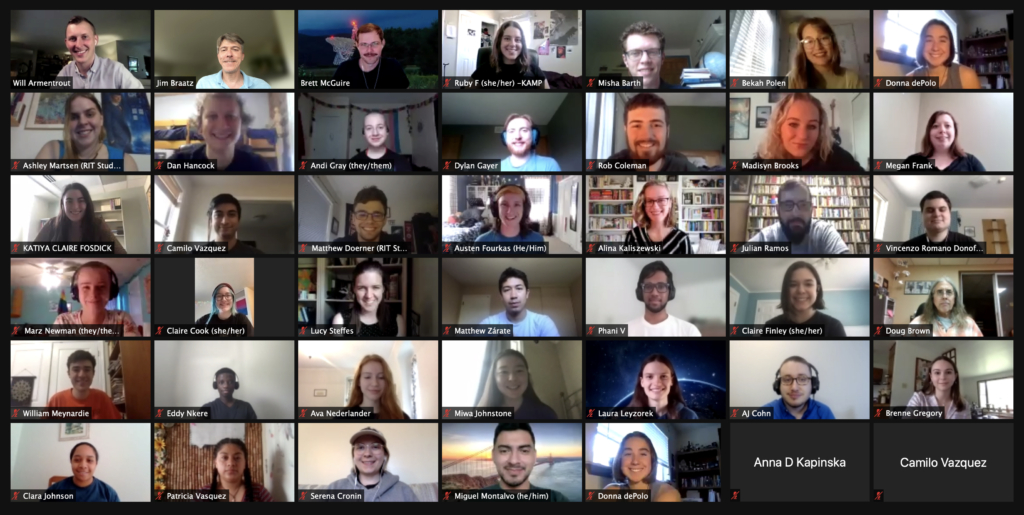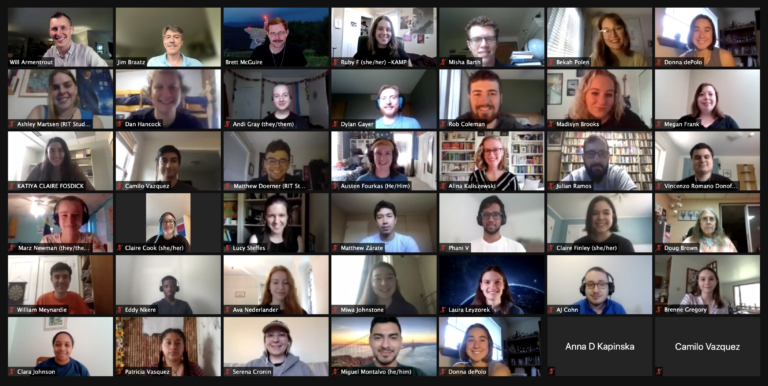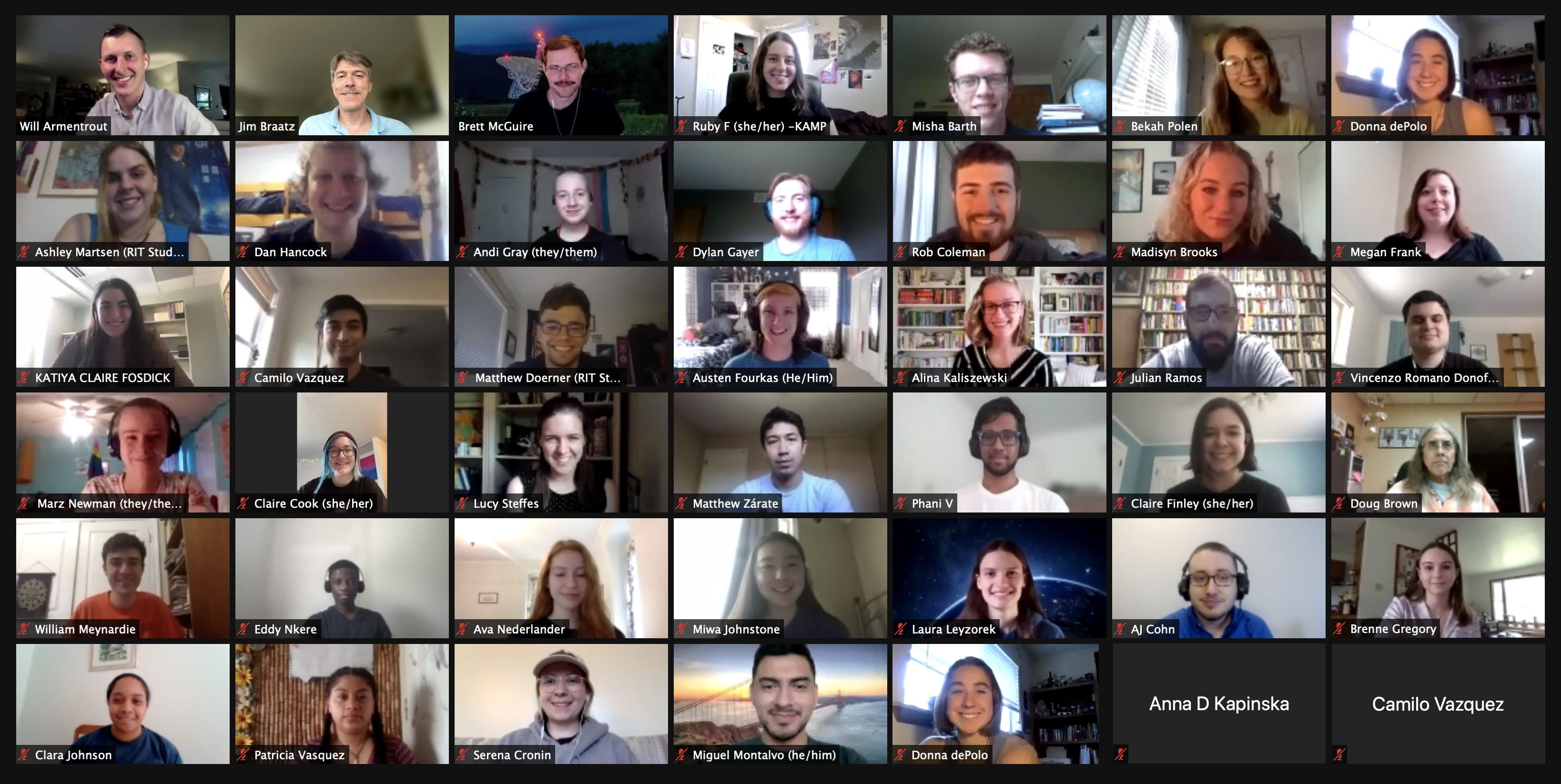The summer research programs at the National Radio Astronomy Observatory (NRAO) kicked off in May 2021 with a significant increase in participation. This year’s program welcomed 65 students across all partner locations, a nearly 67-percent increase over the prior year. NRAO and the Green Bank Observatory (GBO) also welcomed 45 mentors to the summer programs—a record number—many of whom are first-time or early-career mentors.
Each year, NRAO and GBO provide research experiences through internships for both undergraduate and graduate students across several programs, including the Research Experience for Undergraduates (REU), National Astronomy Consortium (NAC), National and International Non-traditional Exchange (NINE), and Physicists Inspiring the Next Generation (PING). These programs give participating students the opportunity to learn from scientists and engineers at NRAO, GBO, and their partner facilities. They provide hands-on training and career development opportunities for the next generation of astronomers and STEM professionals, many from groups underserved by traditional academic pipelines.
For summer 2021, 55 students are hosted by NRAO and GBO mentors in Charlottesville, Virginia; Socorro, New Mexico; and Green Bank, West Virginia. Ten additional students in the NAC program are mentored by program partners at Princeton University, the Space Telescope Science Institute (STScI), the University of Wisconsin-Madison, and Michigan State University.
Jim Braatz, the Student Programs Coordinator at NRAO, sees the change as an important opportunity to serve more students. “Going virtual was a big change for summer programs, but it turns out that a lot of great astronomy research can be accomplished in a remote working environment. After a successful remote program last year, this summer we are able to offer an even richer experience for our students. And to cap it off, with the observatories now reopening, my colleagues Will Armentrout, Anna Kapinska, and JJ Burns are planning a hybrid Summer Student Symposium that will allow many of our cohort to visit the Green Bank Observatory in person to present their research to our staff this August. Virtual and hybrid programs provide an exciting opportunity for us to reach more students.”
This rise in participation benefitted from the ingenuity and perseverance of the 2020 and 2021 mentors and cohort participants, who opted to pursue a remote research experience amidst the COVID-19 pandemic, and figured out how to keep the programs moving and growing despite the obstacles.
Tierra Candelaria, the NAC program lead for NRAO, found that what made the students successful was both a commitment to the program and self-care. “When we went virtual, I thought it was going to be difficult to keep students engaged via Zoom,” she said. “To my surprise, students participated in our meetings. I was also surprised by the students’ situational awareness. They were able to recognize that they were still in the middle of a pandemic, learning online, and struggling with inevitable life circumstances. Many had enough self-recognition to step back and realize the difficult situation they were in and be a bit kinder to themselves.”
Alia Wofford has been a part of the NAC program for several years and was a part of the cohort that made staying strong amidst going virtual a possibility.
“We had to adapt and find new ways of understanding through the pandemic,” she said. “Although it wasn’t anyone’s ideal situation, we became more adaptive in our approach to learning and that will make us more dynamic researchers in the long run.”
Wofford is one of nine recipients of the new AUI Board of Trustees Bridge Scholarship established in 2021 to assist NAC alums in the transition to graduate school.
The switch to virtual learning in both 2020 and 2021 means that students and mentors can participate from anywhere, but NRAO expects the growth to continue even after programs return to in-person participation, due to Broadening Participation efforts. According to Lyndele von Schill, the Director of Diversity and Inclusion at NRAO, “Central to these efforts is a commitment to ongoing relationships with students, and the creation of strong, long-lasting cohorts of students and mentors. The more students and mentors participate in these cohorts, the stronger the support system for students as they progress through their academic and professional careers. The hope is that, in turn, this will result in significant increases in both students and mentors.”









